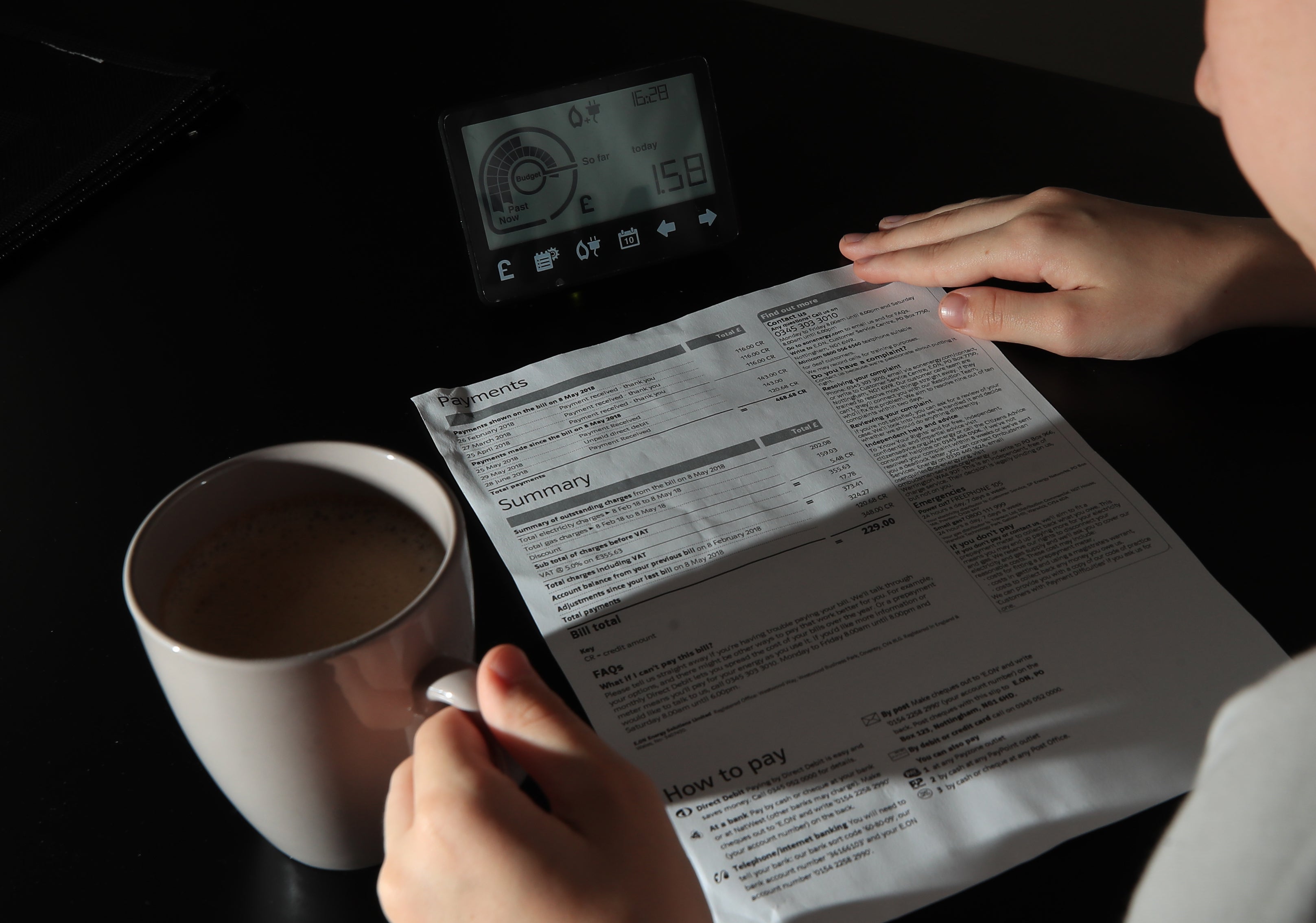Do we heat or do we eat: The Hobson’s choice forced on Britain’s poorest by the government
OfGem’s energy price cap rises in October and it is proving hard to find better on the market as wholesale prices continue to soar. With the cost of food similarly surging, and the government cutting universal credit, low-income Britons are being forced into an impossible situation, writes James Moore


The harsh reality for Britain’s poorest citizens this winter is that a resurgent pandemic could be the least of their problems.
Food prices are rising fast, universal credit is slated to fall, and energy prices are about to deliver the coup de grace.
OfGem’s price cap is slated to increase sharply in October for the 15 million customers it protects, the consequence of surging wholesale energy prices. The regulator’s illustrative figures show that a typical customer on a default tariff paying by direct debit can expect to see an annual increase of £139 to £1,277. A typical prepayment customer’s bill will be £153 higher at £1,309.
Those numbers could hardly look worse for people who are set to suffer the pain of £20 a week coming out of their pockets courtesy of the government’s cruel decision to remove the uplift to universal credit it ushered in at the start of the pandemic.
At the time of the announcement, OfGem stressed that customers could “avoid the increase by shopping around or asking their supplier to put them on a better deal”. It urged them to do so and the advice was sound. At least back in August.
The problem since then is that wholesale prices have continued their relentless rise such that the savings you could have made then are unavailable now. To the contrary, because at least some of the fixed price deals being quoted by energy providers are now priced at a higher level than the cap (remember it only applies default tariffs).
Why on earth would you abandon a capped default tariff to pay extra for a pricier fixed deal? Well here’s the thing: fixed deals are based on futures contracts, which are themselves based on how people think the market will look in the future. Right now the market is betting that energy prices, and thus the cap, will only increase further over the coming months.
The results of the next OfGem review will be announced in February with a new cap slated to come into force in April. The chances of a further increase look uncomfortably high.
Of course, if you’re on a low income, April is going to have to look after itself.
It is true that there are various schemes designed to help people with energy costs. Pensioners born on or before 26 September 1955 can get between £100 and £300 via the winter fuel payment.
The means-tested warm homes discount can knock another £140 off for eligible bill payers and there’s £25 available for each seven-day period of very cold weather between 1 November and 31 March via the cold weather payment scheme to those who qualify.
The problem is that all these schemes are designed to help people with overall energy costs. They do nothing to shield people against energy price rises.
The only way to protect against those is therefore to ferret out one of those increasingly rare better deals or to use less energy by not heating your home.
Faced with a perfect storm of falling benefits, food price rises and energy price rises, low income families have been left facing a Hobson’s choice: do we heat or do we eat?
No one should be left trapped in such a hideous dilemma in one of the richest countries on earth and yet millions of Britons are going to be in that position this winter.
This is a problem that even Nadine Dorries and the government’s beloved culture wars won’t be able to deflect attention from. A group of senior Tories have recognised that fact and are prepared to roll the dice in parliament today with an amendment which would block the annual uprating of pensions unless funds are diverted to stop the benefits cut.
A defeat would not be binding on the government but it might just force its hand. That said, are there enough MPs on the government benches with enough spine to recognise that its current position is morally indefensible?






Join our commenting forum
Join thought-provoking conversations, follow other Independent readers and see their replies
Comments